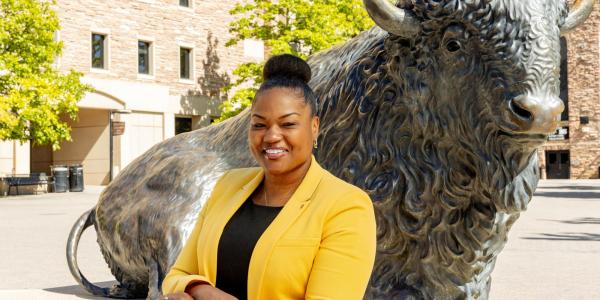
The campaign season is upon us and we know from recent experience that our campus is a popular location for campaign stops. We allow equal access to political parties as an educational forum if they agree to abide by our guidelines with an emphasis on safety and security, reasonable advance notice and avoiding major disruption to our academic mission.
Campaigns also must agree to reasonable accessibility to students, faculty and staff, understanding there may not be availability for everyone who wishes to attend, depending on the venue. Campaign events are viewed as ticketed events, as the campaigns rent the facility and have the ability to remove disruptive participants. Specific protest areas will be provided outside the venue.
During the last academic year, I convened a group of campus leaders representing several departments to form the Significant Events Team (SET). This group serves as an advisory body on the logistics involved in a “significant event,” which is defined as having 1) The potential to disrupt the academic mission; 2) The potential to affect university operations (including access to campus and staff time); or 3. Major health and safety concerns or cost implications for the university and neighboring community.
This team evaluates event proposals to minimize disruption to campus operations and to coordinate with other activities across campus. SET does not review regular university-sponsored events (athletic competitions, Distinguished Speakers Board talks, etc.) but is available to assist with large, impactful events. If you or a third-party are thinking of hosting a significant event, please contact SET chair Sarah Adderholt.
I encourage everyone to be an active participant in the political process. I also feel obligated to remind faculty and staff that as public-institution employees there are university guidelines restricting use of university equipment, resources and time in election-related activities and campaigning.
Please also be aware that we all may face opposing viewpoints. We should engage with our colleagues and constituents in a collegial fashion as we always do.
Participating in the democratic process is certainly a privilege, but as public employees we have special responsibilities. Thank you for your cooperation.
- The Fair Campaign Practices Act (a/k/a Campaign Reform Act, C.R.S. § 1-45-117) generally prohibits public entities, including institutions of higher education, from expending any public money from any source for contributions to a campaign for elected office, or to urge electors to vote in favor or against any ballot issue or referred measure.
- The term "public money" is broadly construed, and includes in-kind contributions such as services or non-monetary resources. The funds and resources of the University of Colorado are considered to be public money, regardless of the amount of state support the university receives.
- Under the act, any person can complain to the secretary of state that a public entity or public employee has violated the law. The secretary of state may investigate any complaint and may impose monetary fines.



